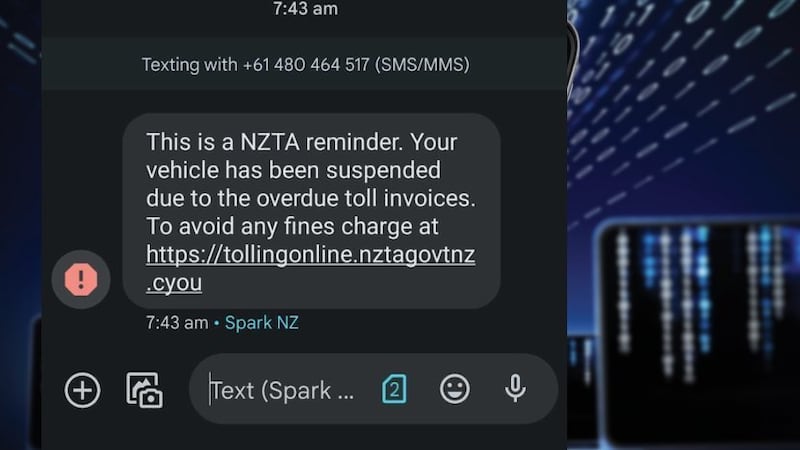The Department of Internal Affairs (Te Tari Taiwhenua) is warning the public to remain vigilant of a massive SMS scam fleecing thousands from the unsuspecting public, they're also warning the scammers to 'hand yourself in.'
The 'NZTA toll' scam has been picking up steam since late 2022, with SMS messages impersonating reputable organizations such as Waka Kotahi – NZTA, NZ Post, Inland Revenue, and numerous New Zealand-based banks, shaking some victims down for thousands.
"We are seeing cases where everyday New Zealanders have lost their entire life savings to this scam, in some cases upwards of $10,000," warns John Michael, Deputy Director of Operations at DIA.
Those sending the messages are committing a crime, which could result in fines of up to $200,000. The DIA is working with mobile networks, banks, NZ Police, and CERT NZ and says they're on their tail.
"By sending scam SMS messages, you are targeting fellow New Zealanders. This has to stop." he cautioned the scammers, saying they should come forward to the DIA, before charges are laid.
Anyone with information on the scam operations should contact info@antispam.govt.nz or report the activity anonymously via Crime Stoppers at 0800 555 111 or online, Michael says.
The messages, the department warns are beginning to get more canny, with the scammers changing their wording so not all messages look the same.
The DIA is asking the public to report the text messages to the department by forwarding them to 7726.
The department says key to not being caught in the scams is to not click links until a txt's authenticity is verified.
That should be done by contacting the organization directly, or navigating directly to the organisations' websites and logging in to check any outstanding accounts.
Poor spelling and grammar in scam messages is a great way to detect a scammer, and you should never provide personal or card details after clicking a suspicious link, Michael says.
Those who suspect they're a victim of the NZTA, IRD, NZ Post, or bank phishing scam should contact NZ Police at 105 or report it online through the 105 website, referencing 'Operation Lime Green.'
If money has been paid, victims should inform their bank immediately.
The DIA says those less familiar with phones such as kuia and kaumātua are most likely to become victims of the scams, and so they urge whānau to help educate the elderly on how to stay wise, to the scams.


